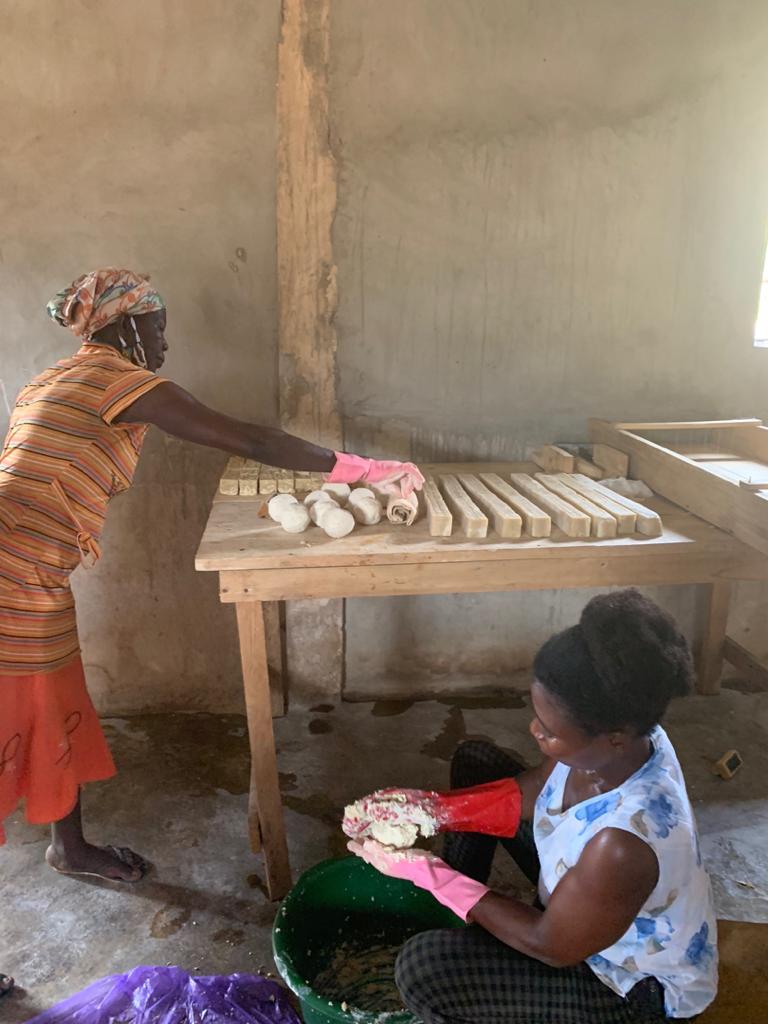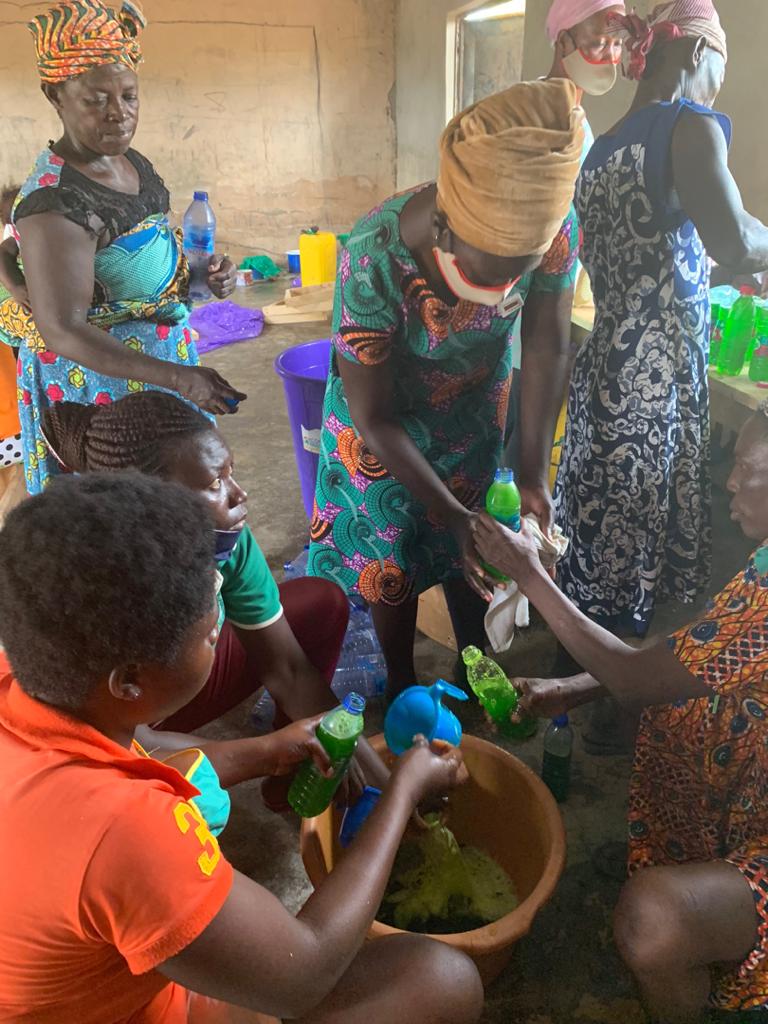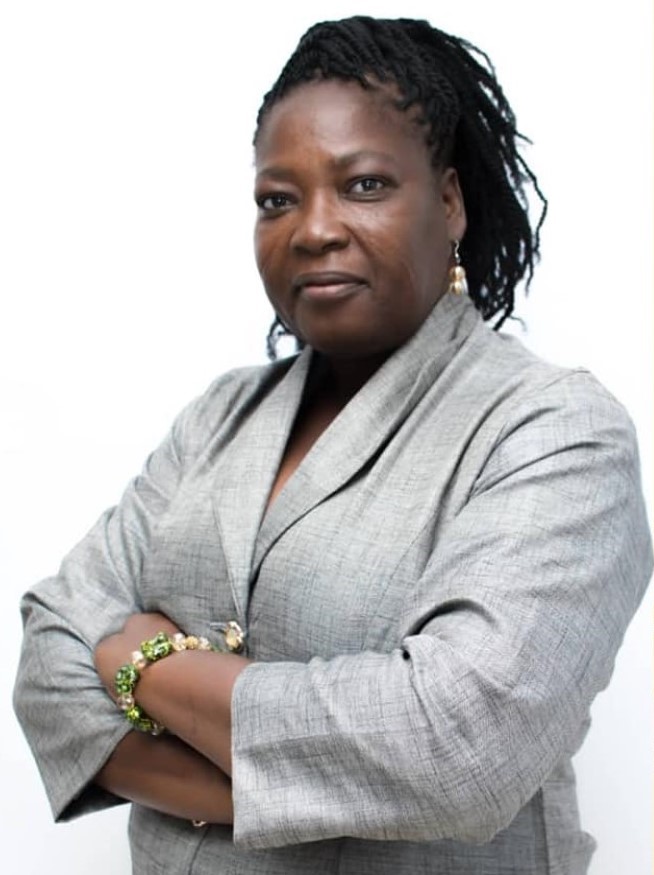|
Getting your Trinity Audio player ready...
|
The Dean of the School of Allied Health Sciences at the Tamale Campus of the University for Development Studies (UDS) has entreated women who occupy leadership positions to use their influence to better the lives of the underprivileged.
Dr. Vida Yakong made this call in a statement she delivered to journalists to mark the International Women’s Day. She celebrated the day by organising a training programme for women in soap production in her native Nabdam, a district in the Upper East Region.
“Happy International Women’s Day to all the wonderful, resilient, brilliant and forever-beautiful women in the world and in Ghana in particular. You defy all odds to contribute to building mother Ghana and reshaping her destiny. The world would be meaningless without you. Your sincere love for life, your vision for the family and your ability to unite a nation is forever appreciated by your ancestors and the people you care for.

“Though tough, don’t give up the fight to make your society better. You have fought mightier fights before. The children of today and leaders of tomorrow are depending on you for a brighter future. They need your usual guidance and protection, your endless and unconditional love to experience positive growth. We are not in normal times and Ghana needs you more to heal the nation of all troubles. To the women in leadership positions, whether traditional or political, I encourage you to use it to the benefit of the less privileged in society,” she said.
The International Women’s Day (March 8) is dedicated annually to celebrating the cultural, economic, political and social achievements of women. The day also highlights the need for all stakeholders to accelerate efforts aimed at attaining women’s equality. The theme for the International Women’s Day 2021 is “Choose to Challenge” with the message “A challenged world is an alert world”.
Dr. Yakong commended for practising what she preaches
The call made by Dr. Yakong— for women of titles to render support to the needy— is rooted in the sympathy which she herself has shown towards the disadvantaged over the course of time and for which development watchers speak well of her home and out of the country.
Recently, she assisted thirty-two poor individuals and five deprived women groups whose living condition was reported to have worsened in Nabdam in the wake of the new coronavirus (COVID-19) pandemic. She gave them some livestock through a non-governmental organisation she runs— the Ghana Rural Opportunities for Women (GROW). The animals were offered for rearing to earn income for the poor beneficiaries. The GROW has been making such donations annually since 2008.
“We are farmers. When we harvest, we have to carry them on our heads. Now, we have been given donkeys and donkey carts. Farming has been made easier for us because when we harvest, we can carry our produce back home on the carts. And we have been given goats to rear. With the rearing of the goats, we will use it to help our families. When our children need something at home or at school, we can sell the goats to cater for them.
“I remember the same GROW brought bicycles to this community some time ago for adults and schoolchildren and trained some of us how to ride. They distributed the bicycles among us the women and the men— which some of us have been riding to our farms. The children ride theirs to their schools so they don’t have to walk a long distance to school as before. More importantly, the same organisation built a clinic for us where we go for healthcare services. It’s a lot of relief for us,” one of the beneficiaries of the COVID-19 relief donations, Dompoka Zebire, said.

Another beneficiary, Babugma Piibil, added: “We have found our lost hope. Our children are relieved in so many ways. We the women are relieved so much by the latest support. And I must add that we used not to have an ambulance but the organisation has made it possible for us to have one at the clinic so that when a sick person is on referral, there is no delay.”
The annual donations made by the GROW in the district are done in collaboration with its donor partners at the University of British Colombia in Canada, a number of organisations and some development teammates around the globe.
By Edward Adeti, Upper East Region, Daily Mail GH





